- Home
- Linda Lael Miller
A Lawman's Christmas: A McKettricks of Texas Novel Page 8
A Lawman's Christmas: A McKettricks of Texas Novel Read online
Page 8
Chester practically collapsed on the rug in front of the sink.
“I’ll go on to the schoolhouse,” Clay told Dara Rose, when he’d finished at the stove, “and see about bringing Edrina home. It would be a favor to me, Mrs. Nolan, if you’d let my dog stay here while I’m gone, since he’s probably too tuckered out to go much farther.”
This time, Dara Rose welcomed the heat that surged through her, pulsing in her face. They weren’t without their blessings, she and the children. “Of course,” she said awkwardly. “Harriet and I will look after Chester. And I don’t mind admitting I’m worried that Edrina might try to make her way home on her own.”
Clay nodded, grinned a little. “She might, at that,” he said.
That grin did something to Dara Rose. She told herself it was simple thankfulness. She needed help, and someone was there to give it and that was that.
“What about the other children?” she asked, as Clay started for the back door.
“If any of them are stranded at the schoolhouse,” he answered, his hand on the knob, “I’ll make sure they get where they’re supposed to go—after I bring your girl home, that is.” He turned toward Harriet, who was now on her knees next to Chester, all concern for his temperament evidently past, drying off his coat with a flour-sack dish towel, and tugged at the brim of his hat. “Thank you for minding my friend, there,” he told the child. “Looks as though he likes you.”
Harriet beamed. “I knew he wouldn’t bite me,” she said.
Clay smiled briefly then, opened the door, leaned into the wind that rushed to meet him and stepped outside. The door closed behind him.
CLAY FOUND HIS WAY to the schoolhouse more from memory than by use of his eyesight, and Miss Krenshaw met him at the door, took him firmly by the arm and pulled him inside, out of the cold and the wind and the blinding assault of the snow.
Except for Edrina, who was huddled close to the stove and bundled inside a faded quilt, the schoolmarm was alone. Evidently, the other kids had already been collected by kinfolks and taken home.
Edrina smiled at him. “I knew you’d come to fetch me, if Mama didn’t,” she said, with a certainty that warmed his heart.
“Sit down, Marshal,” Miss Krenshaw all but commanded, indicating her desk chair, which was the only one in the schoolroom big enough for an adult. “I’ve got some coffee brewing in back.”
Clay didn’t plan to tarry long, since the storm was more likely to get worse than it was to get better, and he wanted to get Edrina back to her mother and sister while the getting was good. But hot coffee sounded mighty nice to him just then, and he wouldn’t mind sitting for a few minutes, either. He was still a young man, and fit, but that cold made his bones ache.
“Thank you,” he said, and took the offered chair.
Miss Krenshaw disappeared into the back, where she probably had private quarters, and returned promptly with the promised coffee.
“Thanks,” Clay repeated, taking the steaming mug from her hand.
Not one to be idle, it would seem, Miss Alvira got busy erasing the day’s lessons off the blackboard.
“You’ll be all right here, on your own?” Clay asked presently, restored by the tasty brew. Miss Alvira had laced it with whiskey, which raised her a notch in his already high estimation. Too bad he couldn’t work up an interest in courting the lady.
“I’ll be just fine,” Miss Alvira said, still busy. She sounded a mite affronted by the question, in fact. “I have everything I need, right here.”
Edrina, still seated by the stove, took in the conversation, but offered no comment. She did look somewhat pensive, though, and Clay wondered briefly what was going through that busy little brain of hers.
He finished the coffee, got to his feet, glanced at one of the windows.
There was no letup to the snow, as far as he could tell.
Miss Alvira marched into the cloakroom, came out with Edrina’s coat and bonnet and briskly prepared the child for the journey home. For good measure, she wrapped the quilt around Edrina again, too.
“There,” she said, with a slight smile.
Clay put his hat back on—he’d left it on a peg next to the door, coming in—and hoisted Edrina, quilt and all, into his arms. As he’d done with Harriet, leaving the mercantile, he tried to cover her with his coat, as well.
“You’re sure there’s nowhere you’d like to go?” he asked Miss Alvira, before opening the door. “To the hotel, maybe? There’re bound to be some folks around, and I could walk you over—”
The schoolmarm gave a little sniff and hiked up her chin again. “Marshal,” she said, putting a point on the word, “as I’ve already told you, I am quite capable of looking after myself, and besides, I wouldn’t think of spending good money on a hotel room.”
“All right, then,” Clay said, with a slight smile and a nod of farewell.
He followed his own quickly disappearing boot prints back to Dara Rose’s front door, shoulders braced against the wind, his arms tight around the little girl tucked in the folds of that old quilt.
A lamp burned in the center of Dara Rose’s kitchen table, and the house was not only blessedly warm, but there was something savory simmering on the stove.
Her face lit up at their return, and even though Clay knew most of that joy was for Edrina, he basked in the welcome, anyway. And Chester was just about beside himself, he was so happy to see Clay.
“You’ll stay for supper,” Dara Rose informed Clay briskly, once he’d set Edrina down, and then she commenced to unwinding that now-damp quilt from around the little girl.
Clay just stood there for a long moment, in his snowy duster and his wet hat, waiting for his bones and sinews to thaw and just enjoying the sight of her. Dara Rose’s aquamarine eyes were bright and her cheeks flushed, probably from the heat of the stove and happiness because Edrina was home.
“All right,” he said, finally realizing that her statement called for some kind of response, however mundane. “Whatever you’re cooking, it smells good.”
She smiled at him, briefly, distractedly, and all but set him back on his heels by the doing of it.
“Edrina, you go in and change into dry clothes,” she told the child.
Edrina hesitated, then left the room. Harriet, after trying in vain to get Chester to come along on the jaunt, followed her sister, chattering about the walk home from the mercantile.
It was a heady thing, being alone with Dara Rose in that steamy little room.
And Clay, a quiet man but not a shy one, couldn’t come up with a single thing to say.
Dara Rose tightened the bands on her apron, a reach-back motion that made her shapely bosom rise and jut out a little. “If the chickens survive this,” she said, with an anxious glance toward the room’s one opaque window, “it will be a miracle, and I sure hope some of the men in town give a thought to the O’Reillys, like they generally do at times like this….”
Her voice fell away, and she gnawed fretfully at her lower lip, likely pondering the fate of the poultry, the family she’d just mentioned, or both.
“The O’Reillys?” Clay croaked out, grabbing hold of the rapidly sinking conversational lifeline with the first thing that jumped off his tongue.
Dara Rose sighed again, turned away from him to stir whatever was cooking in that pot. The scent of it made his stomach rumble, and it came to him that, except for Miss Krenshaw’s whiskeyed-up coffee, he hadn’t had anything since breakfast.
“Peg O’Reilly’s no-good excuse for a husband,” she said quietly, after a glance in the direction of the doorway the little girls had hurried through earlier, “ran off with some…some…woman he met at the Bitter Gulch Saloon, and left a wife and three children behind to fend for themselves!”
For a moment, Clay was taken aback—not by the story, which unfortunately was not an uncommon one, especially with the war in Europe picking up momentum—but by Dara Rose’s apparent failure to draw any correlation between Mrs. O’Reilly’s situati
on and her own. Except for one obvious variable—Parnell had had the bad fortune to die, while the long-gone Mr. O’Reilly was presumably still alive—the two women had essentially been dealt the same bad hand of cards.
Dara Rose seemed to sense that he was looking at her, and she turned to meet his gaze, colored up again and looked quickly away. The girls returned to the kitchen just then, before anything more could be said, Harriet going on about that doll she meant to name Florence, and Edrina replying in lofty, big-sister fashion that Harriet ought to wish in one hand and spit in the other and see which one got full faster.
Clay went to the sink, rolled up his shirtsleeves and commenced to washing his hands with the harsh yellow soap Dara Rose kept in an old saucer wedged behind the pump handle.
He felt a combination of things while he was at it, but mainly, he realized, he was glad. Glad just to be where he was, right there in that kitchen, out of the cold wind, with a lovely woman, two kids and a dog for company.
For the first time since he’d left the Arizona Territory, Clay didn’t have to fight down a hankering for home, didn’t second-guess his decision to strike out on his own instead of making a life on the ever-expanding Triple M with the rest of the family.
Be sure you’re leaving because it’s what you really want to do, Clay, his pa had counseled him, and not because Annabel Carson broke your heart.
It made Clay smile a little to remember that conversation, and others like it, with various members of the home outfit, and he reckoned now that Annabel hadn’t broken his heart at all—she’d just sprained it a little.
The stuff in the pot on the stove turned out to be some kind of mixture of canned venison and leftover vegetable preserves, and it was better, in Clay’s opinion, than a big steak at Delmonico’s.
“Miss Krenshaw keeps a picture of a soldier in her top desk drawer,” Edrina chimed, in the middle of the meal, pretty much out of nowhere.
Snow rasped at the windows and the small cookstove seemed to strain to put out more heat.
“And how would you know a thing like that, Edrina Nolan?” Dara Rose asked, arching one eyebrow, her spoon poised halfway between her mouth and the bowl of soup sitting in front of her.
“She takes it out and looks at it, when she thinks nobody’s looking,” Edrina explained nonchalantly. “Sometimes, she gets tears in her eyes, and her lips move like she’s talking to somebody.”
Clay’s gaze connected with Dara Rose’s.
“Are you going to fight in the war, Mr. McKettrick?” Edrina asked, without missing a beat.
“No,” Clay answered. The armed forces would need beef, and plenty of it, and like his granddad said, some body had to raise the critters. “But my cousin Gabriel thinks he might join up, if things don’t simmer down some over the next year or two.”
A sad expression flickered across Dara Rose’s expressive face; he figured the war was a subject she tried not to think about, since there was nothing she could do to change it.
After supper, Edrina and Harriet cleared the table and set the dishes in the sink, without being told.
Dara Rose crossed the room to take her cloak and bonnet down from their peg near the door. She clearly dreaded whatever she was about to do, and Clay found himself beside her before he’d made a conscious decision to move, reaching for his hat and duster.
Dara Rose looked up at him, and he caught the briefest glimpse into the shimmering vastness of her heart and mind and spirit. There was so much more to her than just her flesh-and-blood person, he realized, with a start akin to waking up suddenly after a long, deep sleep.
“The chickens—” she began, and then went silent.
“I’ll see to them,” Clay said, very quietly. “You stay here, with the girls.”
She considered the idea briefly, then shook her head no. She meant to go out to that chicken coop and that was that. He’d be wasting his breath to argue.
“I’ll heat water to wash the dishes when I get back,” she told the children. “Don’t get too close to the stove, and no scuffling.”
“Oh, Mama,” Edrina said, with a roll of her eyes. “You’ve told us that a thousand times already.”
A smile quirked at one corner of Dara Rose’s mouth. Like the rest of her, visible and invisible, that mouth fascinated Clay out of all good sense and reason. “Well,” she said, “now it’s a thousand and one.”
After a glance at Clay’s face, she opened the door and stepped right out into that blizzard.
Clay followed, and the wind was so strong that it buffeted her back a step, so they collided, her back to his torso. He put his arms out to steady her, and a powerful jolt of…something…shot through him.
Since it was too cold to dally, they recovered quickly and advanced toward the rickety coop.
The chickens had taken refuge inside and, with the exception of the rooster, who squawked indignantly as he paced the floor of that shed, as though fussing over the pure injustice of a snowstorm, the birds huddled close to one another on the length of wood that served as a roost.
There was a visible easing in Dara Rose as she looked around. “At least none of them have frozen to death,” she said, and she might have been addressing herself, not him, trundling over to lift the lid off a wooden bend and lean inside to scoop out feed. Judging by how far she had to lean—Lordy, she had a shapely backside—the supply was starting to run low.
Like a lot of other things in her life, probably.
Clay watched, offering no comment, as Dara Rose filled a shallow pan with feed and set it out for the hens to peck at. That done, she picked up a second pan, went to the doorway and shoveled up some snow. The stuff was already melting around the edges, cold as that chicken coop was, when Dara Rose waded back into the center of the noisy flock to set the second pan down beside the first.
They fought their way back to the house, side by side, heads down, shoulders braced. Clay wanted to put an arm around Dara Rose’s waist, so she wouldn’t fall or blow away, but every instinct warned against it.
The woman had a right to her pride, probably needed it just to press on from one day to the next.
By the time they got back inside the house, the girls had left the kitchen for the front room.
Their voices carried, a happy sound, like the chiming of bells somewhere off in the muffled distance.
Dara Rose moved to untie her bonnet laces, but Clay closed his hands over hers. “You’ve done a fine job raising those girls of yours,” he said, though he hadn’t actually planned the words ahead of time.
Those wonderful eyes of hers searched his face, almost warily. Then she smiled and went on to take off her bonnet, Clay’s hands falling away from hers and back to his sides.
“Thank you, Mr. McKettrick,” she said, stepping back to shed her snow-speckled cloak.
“Clay,” he said, knowing she wanted him to step aside so she could get on with whatever it was she planned to do next but stubbornly holding his ground. “I don’t generally answer to ‘Mr. McKettrick,’ as it happens. Usually, when folks use that moniker, they’re talking to my granddad.”
She blushed, but her eyes flashed. “When I say it,” she told him, “I’m addressing you. We haven’t known each other long enough to use first names.”
He chuckled at that. Curved his finger sideways under her chin and lifted. “Have it your way…Dara Rose,” he said, partly to get under her hide and partly because he just liked saying her name.
Still wearing his coat and hat, he summoned the dog with a soft whistle.
Edrina and Harriet immediately appeared in the inside doorway, squashed together as though there was barely enough room in the gap to contain both of them. Their eyes were wide with curiosity and something else—maybe worry.
“You’re going?” Edrina asked.
“And taking Chester?” Harriet added.
Clay touched the brim of his hat, momentarily ignoring Dara Rose, who was probably still prickly over his impertinent use of her Christian name. �
�Yep,” he said.
“Chester and I ought to be getting over to the jailhouse, in case somebody comes looking for us.”
“But it’s getting dark,” Edrina protested.
“And it’s still snowing really hard,” Harriet said. “What if you and Chester get lost?”
“We’ll find our way,” Clay promised, his voice a little huskier than normal. “Don’t you worry about us.”
Dara Rose surprised him by laying a hand on his arm.
“Take the lantern,” she said.
Clay was moved by the offer, but he didn’t let it show, of course. He just shook his head and smiled a little. “It wouldn’t do much good, hard as the wind’s blowing,” he said. “But I thank you kindly, just the same. And thanks for supper, too, and a right pleasant evening.”
Dara Rose opened her mouth, closed it again and then sighed. “Be careful,” she said.
“I will certainly do that, ma’am,” he answered.
The winter night bit into him like teeth when he moved out into it, Chester struggling along at his side.
Before they got as far as the gate, the dog was practically sinking out of sight with every cautious step, so Clay picked him up, carrying him in the curve of his right arm.
With his free hand, Clay pulled his hat brim down low over his eyes and blinked a couple of times, until he could see. If it weren’t for thin snatches of lamplight, spilling from various windows along the way, he and Chester might have been in some trouble.
As it was, Clay was half-frozen by the time he fumbled with the latch on his office door, stepped over the threshold and set the dog down to feel along the wall for the metal box that held the matches for the stove and the lanterns.
Chester gave a low growl as Clay struck the match.
There was a shuffling clatter over by the desk, followed by the sound of boot soles striking the plank floor and a grumbled curse.
“Damn it, Clay,” growled his cousin Sawyer, “you oughtn’t to sneak up on a man like that, especially when he’s sleeping.”

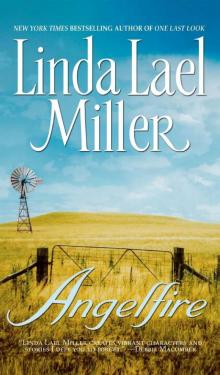 Angelfire
Angelfire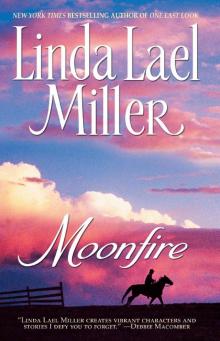 Moonfire
Moonfire The Yankee Widow
The Yankee Widow The Cowboy Way
The Cowboy Way Country Strong--A Novel
Country Strong--A Novel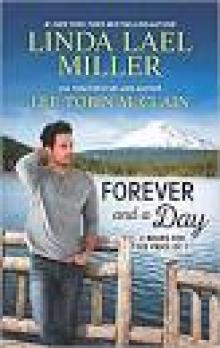 Forever and a Day
Forever and a Day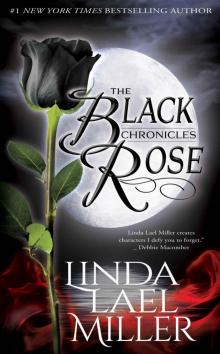 The Black Rose Chronicles
The Black Rose Chronicles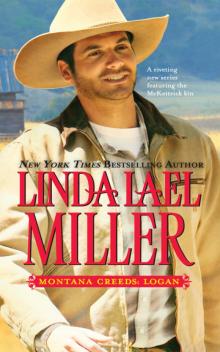 Montana Creeds: Logan
Montana Creeds: Logan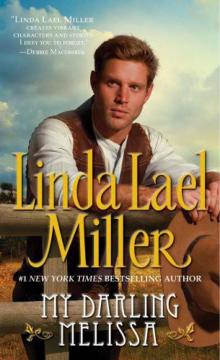 My Darling Melissa
My Darling Melissa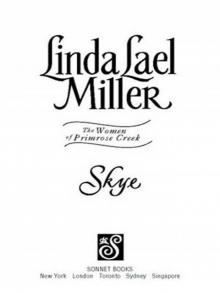 Skye
Skye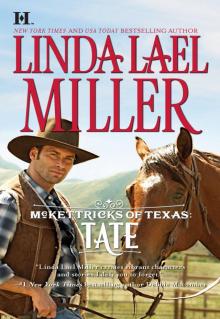 McKettricks of Texas: Tate
McKettricks of Texas: Tate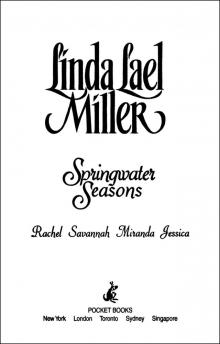 Springwater Seasons
Springwater Seasons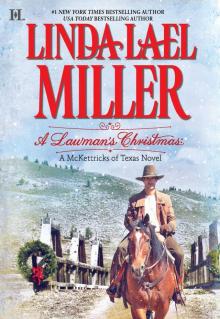 A Lawman's Christmas
A Lawman's Christmas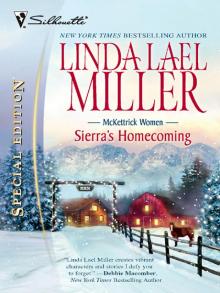 Sierra's Homecoming
Sierra's Homecoming![Parable, Montana [4] Big Sky Summer Read online](http://i1.bookreadfree.com/i/03/22/parable_montana_4_big_sky_summer_preview.jpg) Parable, Montana [4] Big Sky Summer
Parable, Montana [4] Big Sky Summer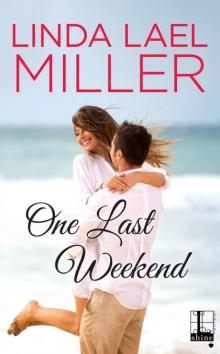 One Last Weekend
One Last Weekend A Stone Creek Collection, Volume 2
A Stone Creek Collection, Volume 2 Tonight and Always
Tonight and Always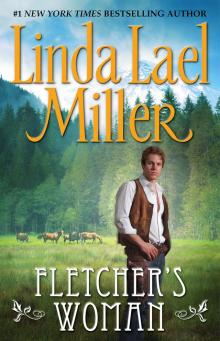 Fletcher's Woman
Fletcher's Woman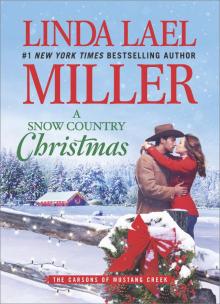 A Snow Country Christmas
A Snow Country Christmas The Last Chance Cafe
The Last Chance Cafe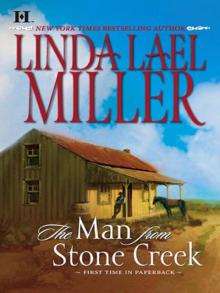 The Man from Stone Creek
The Man from Stone Creek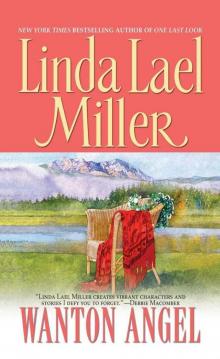 Wanton Angel
Wanton Angel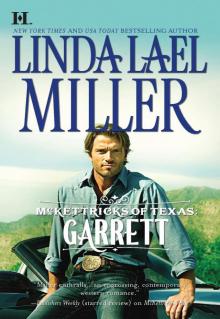 McKettricks of Texas: Garrett
McKettricks of Texas: Garrett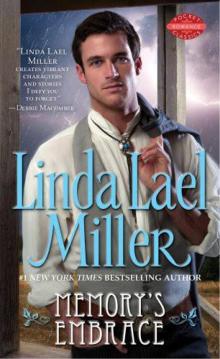 Memory's Embrace
Memory's Embrace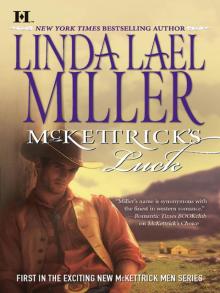 McKettrick's Luck
McKettrick's Luck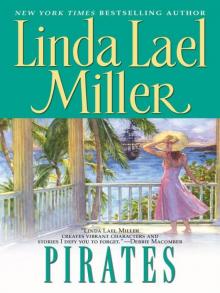 Pirates
Pirates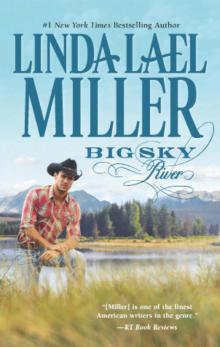 Big Sky River
Big Sky River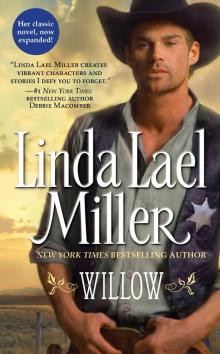 Willow: A Novel (No Series)
Willow: A Novel (No Series)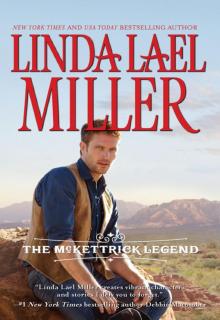 The McKettrick Legend: Sierra's HomecomingThe McKettrick Way (Hqn)
The McKettrick Legend: Sierra's HomecomingThe McKettrick Way (Hqn)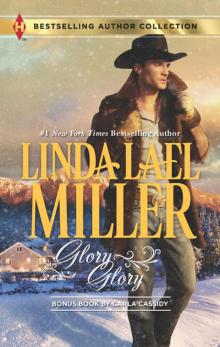 Glory, Glory: Snowbound with the Bodyguard
Glory, Glory: Snowbound with the Bodyguard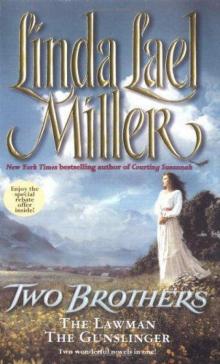 Two Brothers
Two Brothers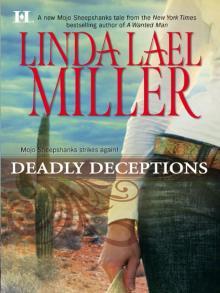 Deadly Deceptions
Deadly Deceptions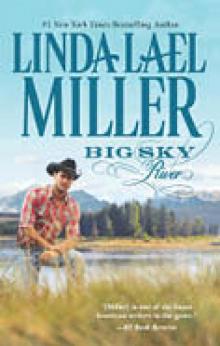 Big Sky Secrets
Big Sky Secrets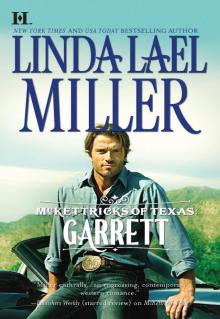 Garrett
Garrett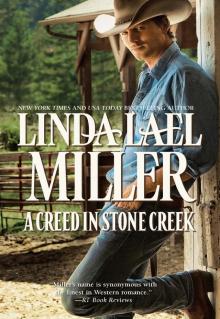 A Creed in Stone Creek
A Creed in Stone Creek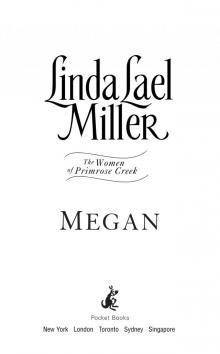 Megan
Megan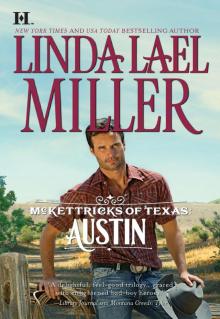 McKettricks of Texas: Austin
McKettricks of Texas: Austin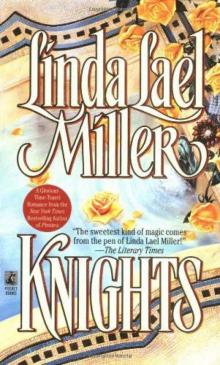 Knights
Knights High Country Bride
High Country Bride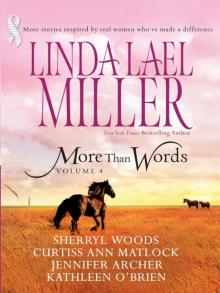 More Than Words Volume 4
More Than Words Volume 4 Glory, Glory
Glory, Glory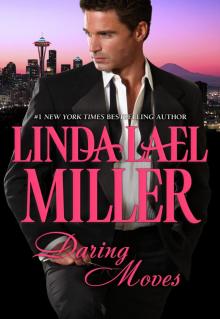 Daring Moves
Daring Moves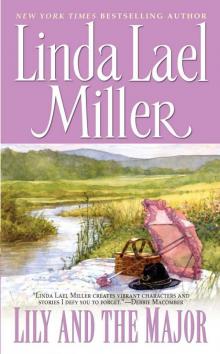 Lily and the Major
Lily and the Major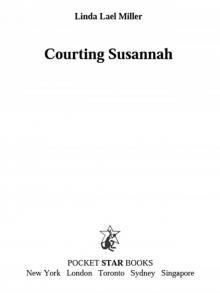 Courting Susannah
Courting Susannah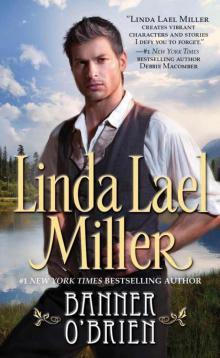 Banner O'Brien
Banner O'Brien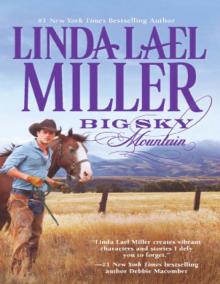 Big Sky Mountain
Big Sky Mountain Linda Lael Miller Bundle
Linda Lael Miller Bundle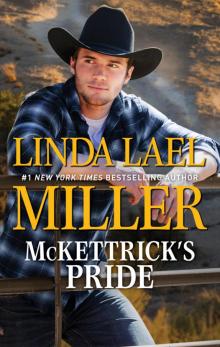 McKettrick's Pride
McKettrick's Pride A Stone Creek Collection Volume 1
A Stone Creek Collection Volume 1 A Wanted Man
A Wanted Man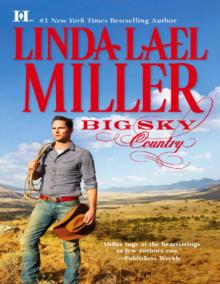 Big Sky Country
Big Sky Country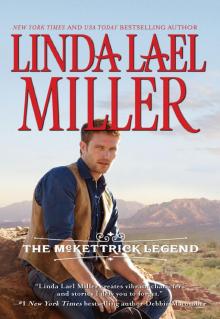 The McKettrick Legend
The McKettrick Legend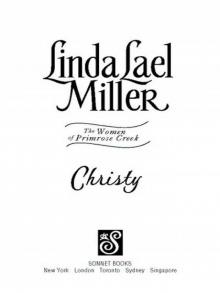 Christy
Christy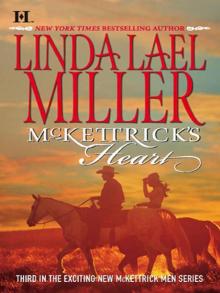 McKettrick's Heart
McKettrick's Heart Resurrection
Resurrection Arizona Heat
Arizona Heat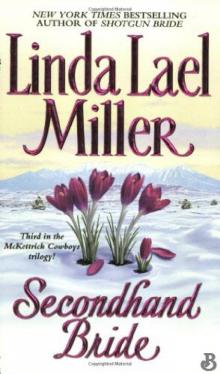 Secondhand Bride
Secondhand Bride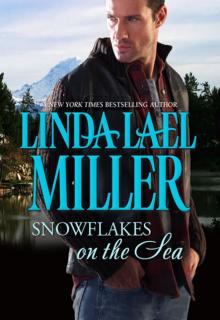 Snowflakes on the Sea
Snowflakes on the Sea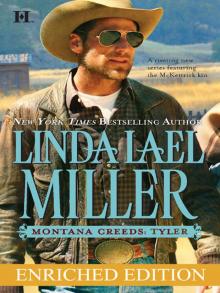 Montana Creeds: Tyler
Montana Creeds: Tyler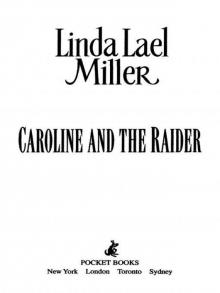 CAROLINE AND THE RAIDER
CAROLINE AND THE RAIDER A Proposal for Christmas: State SecretsThe Five Days of Christmas
A Proposal for Christmas: State SecretsThe Five Days of Christmas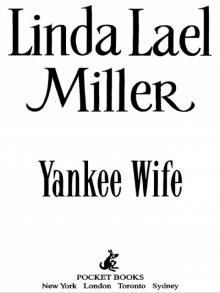 Yankee Wife
Yankee Wife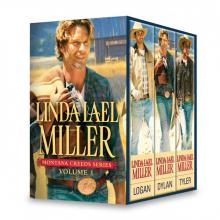 Linda Lael Miller Montana Creeds Series Volume 1: Montana Creeds: LoganMontana Creeds: DylanMontana Creeds: Tyler
Linda Lael Miller Montana Creeds Series Volume 1: Montana Creeds: LoganMontana Creeds: DylanMontana Creeds: Tyler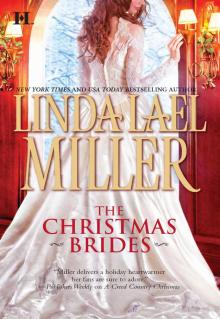 The Christmas Brides
The Christmas Brides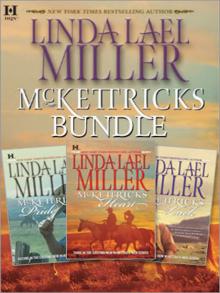 McKettricks Bundle
McKettricks Bundle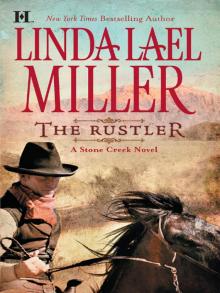 The Rustler
The Rustler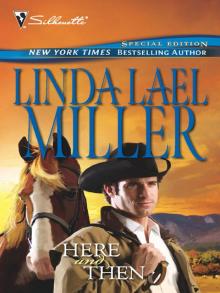 Here and Then
Here and Then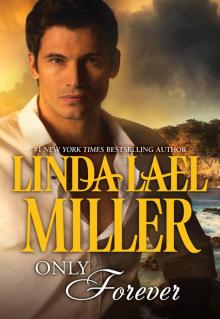 Only Forever
Only Forever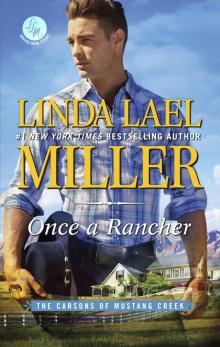 Once a Rancher
Once a Rancher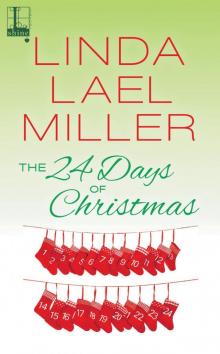 The 24 Days of Christmas
The 24 Days of Christmas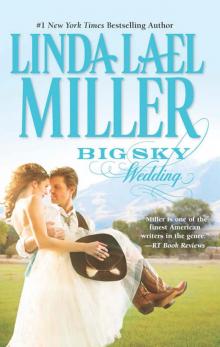 Big Sky Wedding
Big Sky Wedding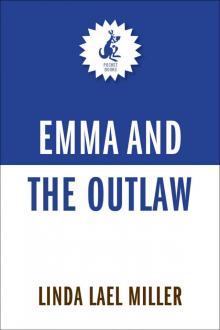 Emma and the Outlaw
Emma and the Outlaw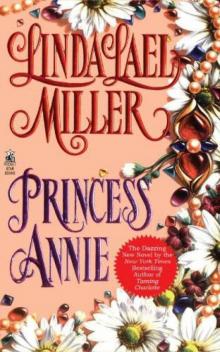 Princess Annie
Princess Annie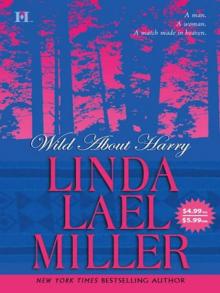 Wild About Harry
Wild About Harry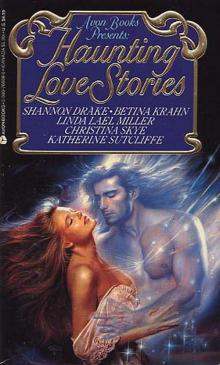 That Other Katherine
That Other Katherine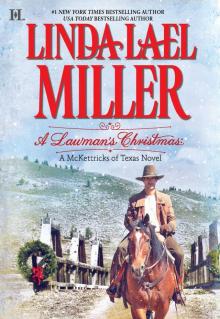 A Lawman's Christmas: A McKettricks of Texas Novel
A Lawman's Christmas: A McKettricks of Texas Novel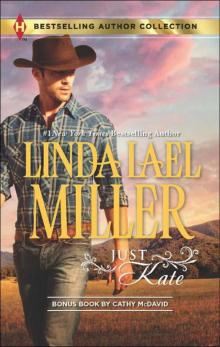 Just Kate: His Only Wife (Bestselling Author Collection)
Just Kate: His Only Wife (Bestselling Author Collection)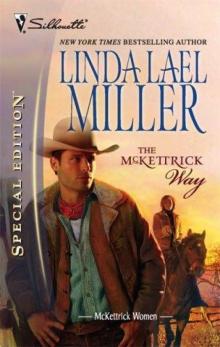 The McKettrick Way
The McKettrick Way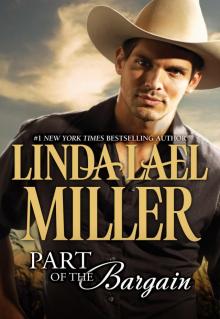 Part of the Bargain
Part of the Bargain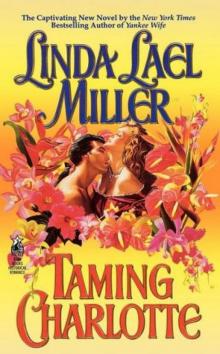 Taming Charlotte
Taming Charlotte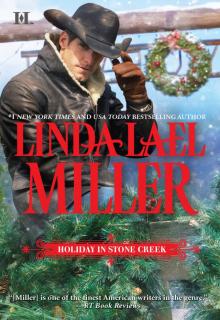 Holiday in Stone Creek
Holiday in Stone Creek One Last Look
One Last Look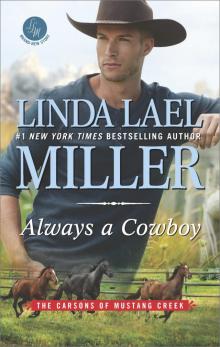 Always a Cowboy
Always a Cowboy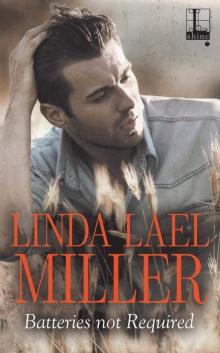 Batteries Not Required
Batteries Not Required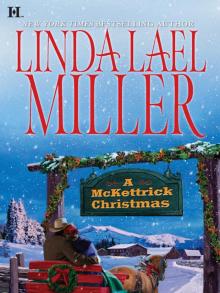 A McKettrick Christmas
A McKettrick Christmas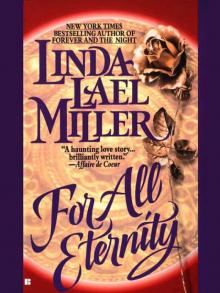 For All Eternity
For All Eternity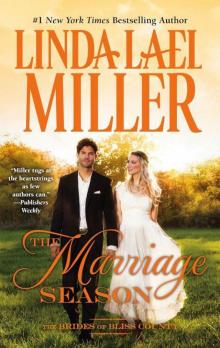 The Marriage Season
The Marriage Season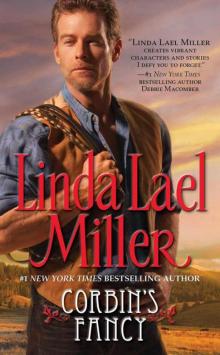 Corbin's Fancy
Corbin's Fancy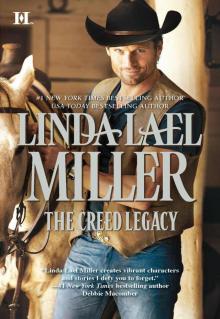 The Creed Legacy
The Creed Legacy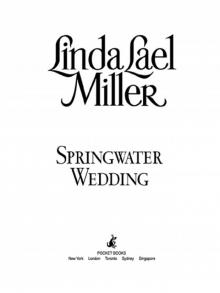 Springwater Wedding
Springwater Wedding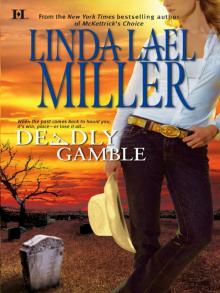 Deadly Gamble
Deadly Gamble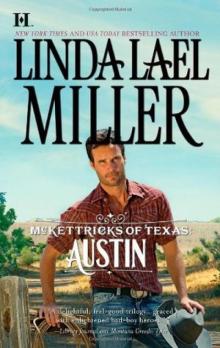 Austin
Austin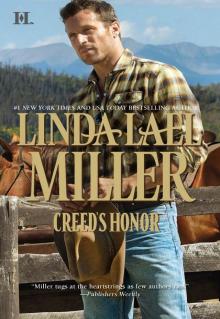 Creed's Honor
Creed's Honor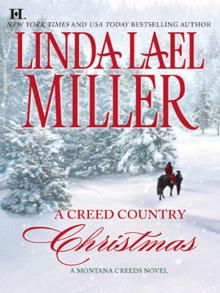 A Creed Country Christmas
A Creed Country Christmas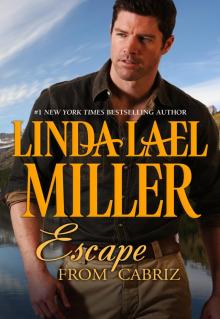 Escape from Cabriz
Escape from Cabriz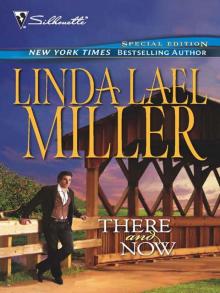 There and Now
There and Now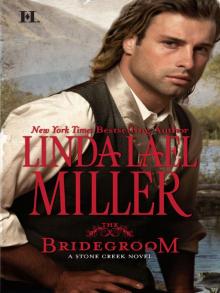 The Bridegroom
The Bridegroom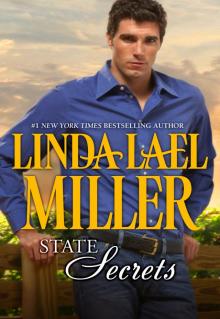 State Secrets
State Secrets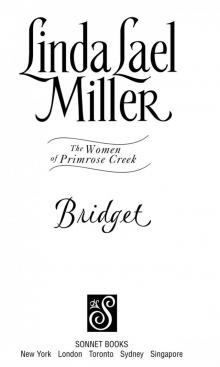 Bridget
Bridget